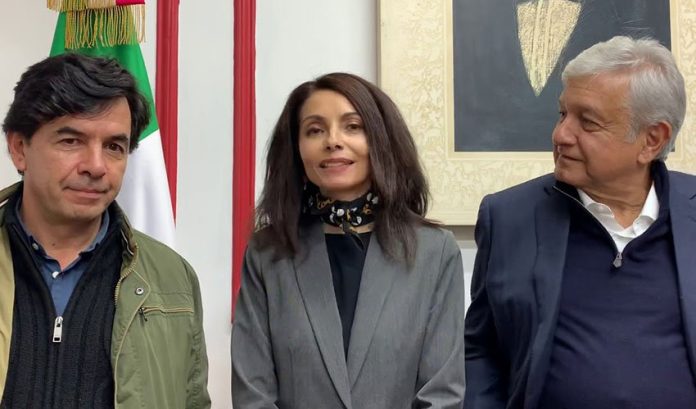President-elect López Obrador and members of his transition team today issued a call to all Mexicans to contribute to the creation of a so-called moral constitution.
The incoming government’s intention is to establish a document which sets out ethical and moral codes for all citizens.
It argues that the moral constitution is needed because decadent practices such as corruption have become engrained and normalized in Mexican society.
“We call on all Mexicans to contribute individually or collectively to the development of this code which will contribute to the transformation of public life in Mexico,” said Jesús Ramírez, spokesman for the new government, which will receive submissions from the public via e-mail between December 3 and April 30 before unveiling the definitive document next July.
Verónica Velasco, a member of the team charged with managing the initiative, said the moral constitution would seek to guide citizens in their personal conduct but stressed that it would not be legally binding.
“The moral constitution is not [a] legal [document], it’s not an attempt to regulate private life, it’s not a pretext to build an authoritarian model of government, it will not force or impose anything on anyone, it’s not catechism, there are no citizens’ commandments. We live in a secular state,” she said.
Velasco argued that burdens on society such as “dishonesty, corruption and violence” are responsible for Mexico’s underdevelopment, adding that while government officials have a particular responsibility to set an example, “the practice of ethical principles and values also applies to the private sector, trade unions and society in general.”
The moral constitution seeks, she said, to create “a catalog of principles and moral values that guide and inspire us to develop the respect in society that corrupt politicians have sullied.”
For his part, López Obrador defended the government’s right to create the moral constitution, asserting that it would not be a religious document nor would it encroach on people’s privacy.
“It’s thought that we shouldn’t get involved in these matters, that it’s not our place. There are those who think it’s a religious thing, a personal thing, an invasion of our privacy. But as has been evident for a long time, since the Greeks, morality is very important. Politics is an ethical imperative and the need to strengthen values must be considered,” he said.
“We believe that transformation requires advancing materially and advancing in our moral and spiritual values. There is a great richness of values in our people. In the face of epidemics, floods, earthquakes, corruption [and] bad governments, what has always saved us has been our culture or cultures . . .” the president-elect added.
Source: Sin Embargo (sp), Milenio (sp)
